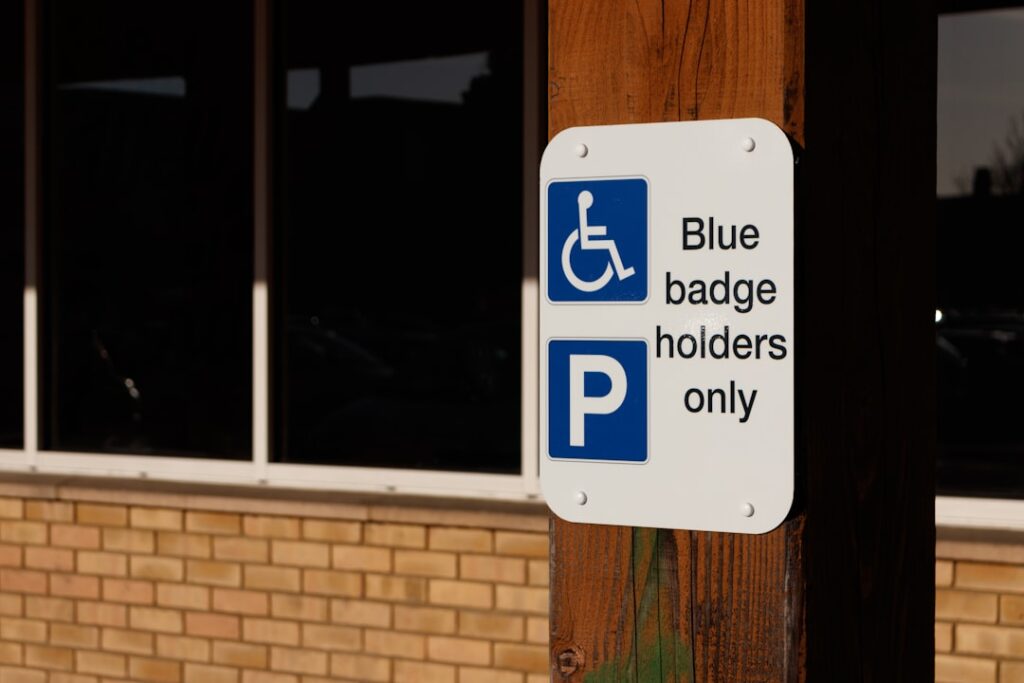For those who are unable to work because of an illness, injury, or pregnancy that is not related to their line of work, the Employment Development Department of California offers California EDD Disability Benefits. To help eligible participants maintain their financial stability during periods of incapacity & ease their return to work after recovery, this program provides temporary income replacement. These benefits are available to self-employed people and employees who have paid voluntarily or through payroll deductions into the State Disability Insurance (SDI) program. The program helps beneficiaries focus on their recovery without worrying about money by paying for a portion of lost wages during the disability period.
Key Takeaways
- California EDD Disability Benefits provide financial assistance to individuals who are unable to work due to a disability or illness.
- Eligibility for California EDD Disability Benefits is based on having a physical or mental condition that prevents you from working, having earned enough wages, and being under the care of a licensed healthcare provider.
- To apply for California EDD Disability Benefits, you can submit an application online, by mail, or by phone, and you will need to provide medical documentation to support your claim.
- There are two main types of California EDD Disability Benefits: State Disability Insurance (SDI) and Paid Family Leave (PFL), each with different eligibility requirements and benefit amounts.
- The amount you can receive from California EDD Disability Benefits is based on your earnings and the severity of your disability, with a maximum weekly benefit amount set by the state.
California EDD Disability Benefits are a vital safety net that helps people who can’t work due to unforeseen circumstances. This support is essential in difficult times as it enables recipients to meet their basic needs even when they are not able to earn an income. Health-related needs. Candidates must be unable to perform their usual or customary work due to a non-work-related illness, injury, or pregnancy. This implies the disability must be verified by a qualified healthcare professional and have nothing to do with their line of work. Needs for Earnings.
A minimum wage and payment into the SDI program during a designated period, referred to as the base period, are prerequisites for eligibility in addition to meeting the medical requirements. If an employee meets the earnings requirements, benefits are normally available to them even if SDI taxes have been withheld from their paychecks. If they have reached the required earnings thresholds, self-employed people who have voluntarily contributed to the SDI program may also be eligible for benefits. Additional Requirements for Eligibility.
In addition, candidates must be unable to work as usual for a minimum of eight days in a row and be receiving medical attention from a licensed healthcare professional. It is noteworthy that individuals who are currently receiving benefits from unemployment insurance or workers’ compensation are typically ineligible for California EDD Disability Benefits. Online, by mail, or over the phone, the application process for California EDD Disability Benefits is a fairly simple one. Anyone interested in applying for Disability Insurance (DI) benefits can visit the EDD website and fill out the online application.
| Metrics | Data |
|---|---|
| Maximum Weekly Benefit Amount | 1,357 |
| Minimum Weekly Benefit Amount | 50 |
| Duration of Benefits | Up to 52 weeks |
| Qualifying Disability Conditions | Physical or mental conditions that prevent work |
| Eligibility Requirements | Must have paid into State Disability Insurance (SDI) and be unable to work due to disability |
For candidates who would rather handle their application from the comfort of their own home, the online application offers the convenience of allowing all required information and documentation to be submitted electronically. As an alternative, people can get a paper application by writing or calling the EDD. If any supporting documentation is needed, such as a medical certification from a certified healthcare professional, the paper application can be filled out and mailed in. Lastly, candidates can apply for benefits over the phone by contacting the EDD at its toll-free number and getting help from a representative with the application procedure.
Either way, candidates must submit details regarding their past employment history, including income & employer information, as well as medical conditions and treatments. To guarantee a seamless and effective submission, it’s critical to compile all required documentation before starting the application process. Following submission of the application, the EDD will examine the data and inform the applicant of their eligibility for benefits. Depending on their unique situation, people may qualify for one of several categories of California EDD Disability Benefits.
Temporary Disability Insurance (TDI), which offers a partial wage replacement to people unable to work because of an illness, injury, or pregnancy unrelated to their job, is the most popular form of disability benefit. In order to support the individual financially while they heal from their disability, TDI benefits are normally available for a maximum of 52 weeks. Paid Family Leave (PFL) is a different kind of disability benefit that partly replaces an employee’s income for time missed from work due to caring for a critically ill family member or forming a bond with a new little one. PFL benefits are available for a maximum of eight weeks, and in certain circumstances, they can be combined with TDI benefits. In addition, people with long-term or permanent disabilities that prohibit them from working might be eligible for State Disability Insurance (SDI) benefits, which offer continuous financial assistance to people with disabilities that keep them from working.
It is imperative that individuals comprehend the various categories of disability benefits that are accessible & how they might relate to their particular circumstances. Choose the benefit type that best suits your needs by carefully weighing your options. Each type of benefit has different qualifying requirements and coverage durations. An individual’s eligibility for California EDD Disability Benefits is determined by their past earnings history and is limited by the EDD’s weekly maximum benefit amount.
Eligible workers typically receive between 60 & 70 percent of their average weekly wages through TDI benefits, with a weekly benefit cap. Earnings during the base period—typically the 12 months preceding the onset of disability—determine the precise amount of benefits that an individual is eligible for. For instance, if a person’s average weekly pay was $1,000 during the base period, they might be qualified for TDI benefits of between $600-$700 per week, up to the EDD’s maximum weekly benefit cap. It’s crucial to remember that not everyone will receive the same amount of benefits from TDI because there are minimum & maximum benefit amounts that apply.
Also, PFL benefits reimburse qualified workers for between 60 & 70 percent of their average weekly earnings, subject to an EDD-set weekly benefit cap. When preparing for your post-injury financial needs, it’s critical to know how much you can get from California EDD Disability Benefits. You can better plan for your disability and make sure you have the money you need during this time by being aware of how much you should expect in benefits. Comprehending the Notice of Denial.
To find out why your application was rejected, you should first carefully read the denial notice that the EDD sent you. Frequently cited grounds for denial encompass inadequate medical records, non-fulfillment of wage obligations, or inconsistencies in the data submitted on the application. The Procedure for an Appeal.
After you comprehend the reasons behind the denial of your application, you can gather further information or supporting documentation to bolster your eligibility for benefits & file an appeal with the EDD. Generally, the appeal procedure entails filing a formal request for reconsideration along with any supporting records that could clarify your eligibility for benefits. It is crucial that you adhere to the guidelines in the notice of denial and file your appeal within the allotted time frame to protect your right to do so.
Next Moves and Help Requesting. Following the receipt of your appeal, the EDD will examine your case and determine whether you qualify for benefits. You might be able to request reconsideration through an administrative hearing or other legal channels if your appeal is rejected. It’s critical that you look for support from an accomplished lawyer or advocate who can help you navigate the appeals process and fight for your rights. In order to help people through the application process and comprehend their rights and obligations while receiving benefits, there are a few key things to understand about California EDD Disability Benefits. It’s crucial to realize that the primary purpose of disability benefits is to temporarily replace lost income for people who are unable to work because of an illness, injury, or pregnancy that isn’t related to their job.
These benefits are meant to cover a portion of a person’s wages while they are disabled, not to completely replace it. Also, in order to maintain eligibility for benefits, recipients of disability insurance must continue receiving medical care & adhere to their doctor’s recommendations. This might entail going to doctor’s appointments, following doctor’s orders, and supplying the EDD with updated medical records. Benefits may be denied or terminated for noncompliance with these conditions.
It’s crucial that people receiving disability benefits are aware of their rights when it comes to going back to work after their illness has healed. The EDD offers tools and assistance in the form of job placement & vocational rehabilitation services to enable people to return to work as soon as they are able. By understanding these important aspects of California EDD Disability Benefits, individuals can make informed decisions about their healthcare and employment options while receiving benefits. Ultimately, for those unable to work because of an illness, injury, or pregnancy unrelated to their job, California EDD Disability Benefits represent a significant source of financial support.
Through a thorough comprehension of the eligibility criteria, application procedure, available benefit types, benefit amounts, appeals process, and crucial aspects to be aware of while receiving benefits, participants can confidently navigate this program & obtain the necessary support throughout their disability.



